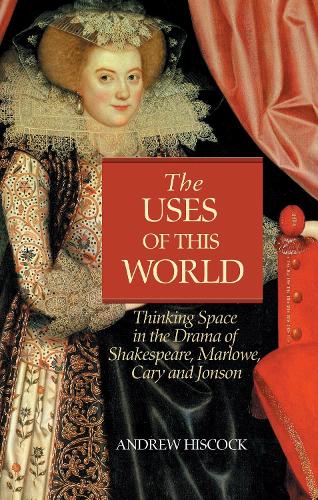
The Uses of this World: Thinking Space in Shakespeare, Marlowe, Cary and Jonson
(Hardback)
Publishing Details
The Uses of this World: Thinking Space in Shakespeare, Marlowe, Cary and Jonson
By (Author) Andrew Hiscock
University of Wales Press
University of Wales Press
17th January 2005
United Kingdom
Classifications
Tertiary Education
Non Fiction
European history: Renaissance
822.309355
Physical Properties
Hardback
240
Width 138mm, Height 216mm
Description
The Uses of this World examines how early modern theatre texts dramatize the ways in which cultural space is produced. It demonstrates that the theatre engaged fully with the fundamental change in the social and philosophical organization of space which took place in this period. Andrew Hiscock argues that Renaissance drama interrogates models of social organization and spatial boundaries defined by property relations, economic hierarchies, historical custom and kinship ties, and stresses that space is not a neutral, fixed and passive container, but emerges instead as a socially constructed process. Plays considered include Hamlet, The Jew of Malta, Antony and Cleopatra, Tragedie of Mariam (Elizabeth Cary), Volpone and The Alchemist.
Author Bio
Andrew Hiscock is Senior Lecturer in the Department of English, University of Wales, Bangor. He has published widely on early modern writing in academic journals. His first monograph, Authority and Desire: Crises of Interpretation in Shakespeare and Racine, appeared in 1996 and he co-edited Dangerous Diversity: The Changing Faces of Wales from the Renaissance to the Present Day (1998). He is at present co-editing a forthcoming collection, Shakespeare and Early Modern Dramatists, and is working on a new study of discourses of memory in early modern literature.
